This Post May Contain Affiliate Links. Please Read Our Disclosure Policy.
These sous vide eggs are just perfect: the whites are set, the yolk is beautifully rich and runny, and they’re so quick to make! Soft like poached with even more tender egg whites, this method takes eggs to the next level. Made easy with a precision cooker like an Anova.
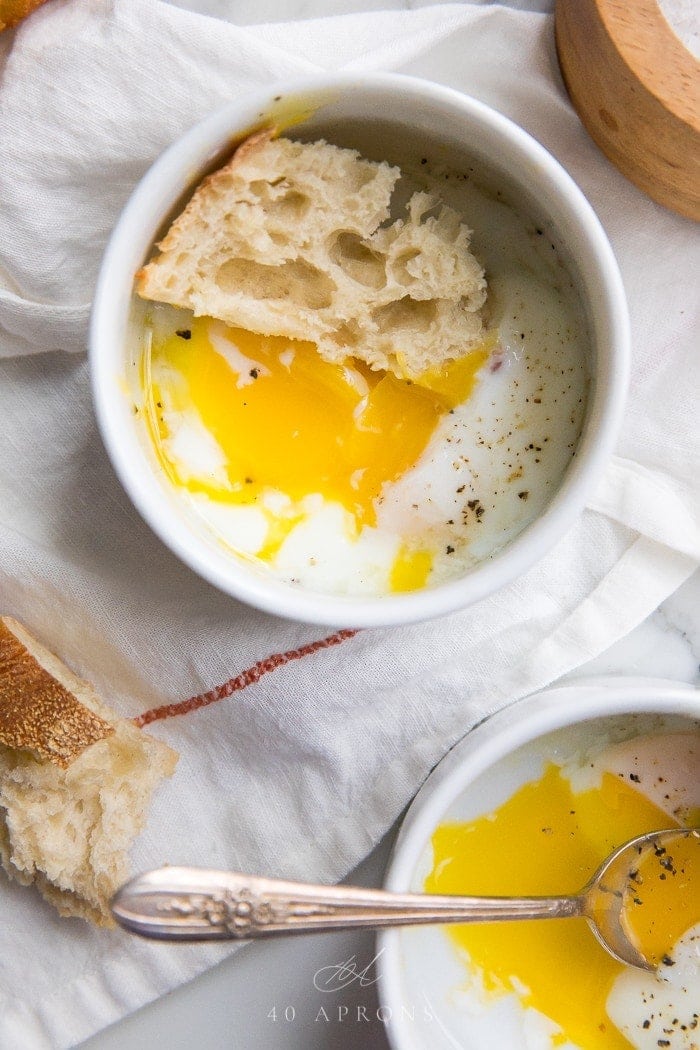
This recipe started so simply: Toss a few eggs into my sous vide water bath, turn on my circulator, and go. Boom, perfection! Right?
Eh, OK, not quite.
It took me so, so many attempts at the perfect sous vide eggs to really nail it. Either the whites were way too gooey and not yet set or the yolk turned into a little ball within still loosey goosey whites. Uh, not the point, Sous Vide Eggs.
Then finally, we nailed it: the right temperature and the right time produced the most perfect sous vide eggs ever. Set whites, runny, warm yolks that you can easily crack into a cup. No peeling required! I’m in love.
Why These Eggs Are Perfect
- The egg whites are totally set, but the yolks are perfectly creamy, rich, and runny.
- It only takes 15 minutes to cook these eggs with the help of a sous vide precision cooker. You can also adjust the cooking time to achieve the desired egg consistency, but I like a sweet 15 minutes personally.
- They’re easier and richer than poached or soft boiled eggs.
- You can crack them right into a bowl or onto a piece of toast – no peeling required.
How to Make Them
Making the perfect sous vide eggs is a lot more complicated than you would think. There are three primary variables at play here:
- Temperature
- Cooking duration
- Finishing of the egg
What Temperature Should You Set Your Sous Vide to?
Many methods for sous vide eggs call for a 63º C/145º F water bath. I tested this temperature at a longer duration (about 45 minutes) but found the whites completely gooey and not set. I love a lightly set yolk as much as the next person, but loose whites on my toast are just not my thing.
I wanted the whites basically entirely set, so I cranked the temperature up to 165º F (73.89º C). Cooking the egg at this temperature for a long time (45 minutes) produced a very, very set yolk and less set white.
Then I gave it another go at a shorter cooking time, 15 minutes.
Finally, this higher cooking temperature (165º F) at a shorter cooking time of 15 minutes produced totally set whites (without being too firm) and gorgeously runny, rich yolks. So creamy and dreamy! Just perfect.
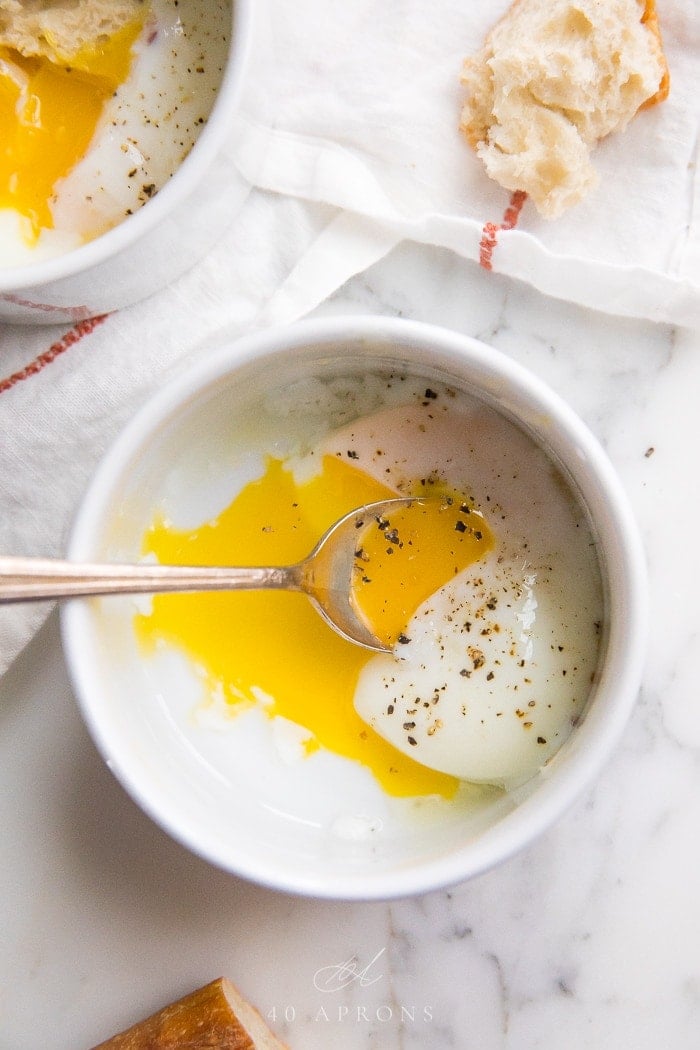
What About Cook Time?
Precision is key here, as evidenced by my weird “yolk ball in a little pocket of egg whites” experiment cooking the egg at 165º F for 45 minutes.
Plunk your eggs (CAREFULLY!) in the water bath and set your time right away for 15 minutes. After 15 minutes, immediately remove the eggs and transfer to an ice bath.
Note: You can also adjust the cook time to achieve the consistency you want. Here are the modifications:
- 13.5 minutes for a runny yolk
- 14 minutes for a jammier yolk
- 15 minutes for the most set (but still creamy) yolk
And Then What?
I finished slow cooking my sous vide eggs by immediately dunking them into an ice bath and letting them stay there for a few minutes. This stops the cooking process right away and makes them a little easier to crack into or onto a bowl, piece of toast, etc. It’s not absolutely necessary, but I do recommend it.
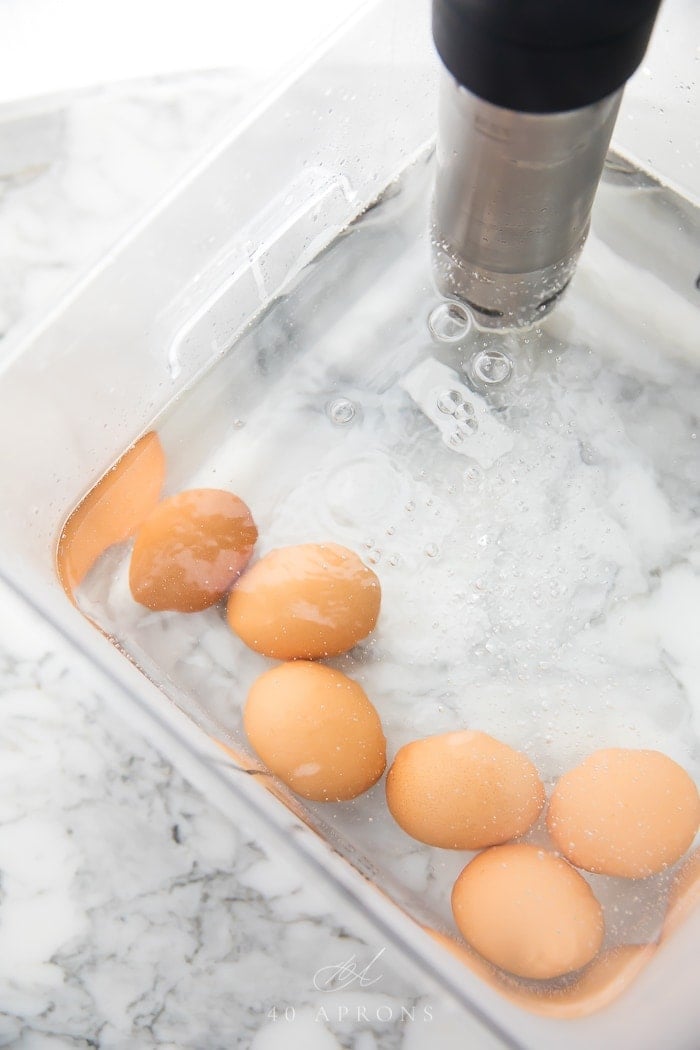
Instructions
Set your precision cooker to 165º F (74º C). Choose your timing based on desired yolk consistency.
Leave your eggs in the fridge. Let the water come to temperature then take your eggs out of the fridge. Carefully lower the eggs into the water bath; a handheld strainer or slotted spoon is great for that.
Remember to set a timer and don’t guess – precision is everything with sous vide!
After your chosen cooking time, immediately remove the eggs from the water bath and transfer to an ice bath for a few minutes. About 3 if you want warm eggs; longer if you’d like chilled.
Tap the middle of the egg on the side of a bowl or surface then crack the egg into a bowl or onto a plate or piece of toast. Sprinkle with lots of salt and pepper and devour!
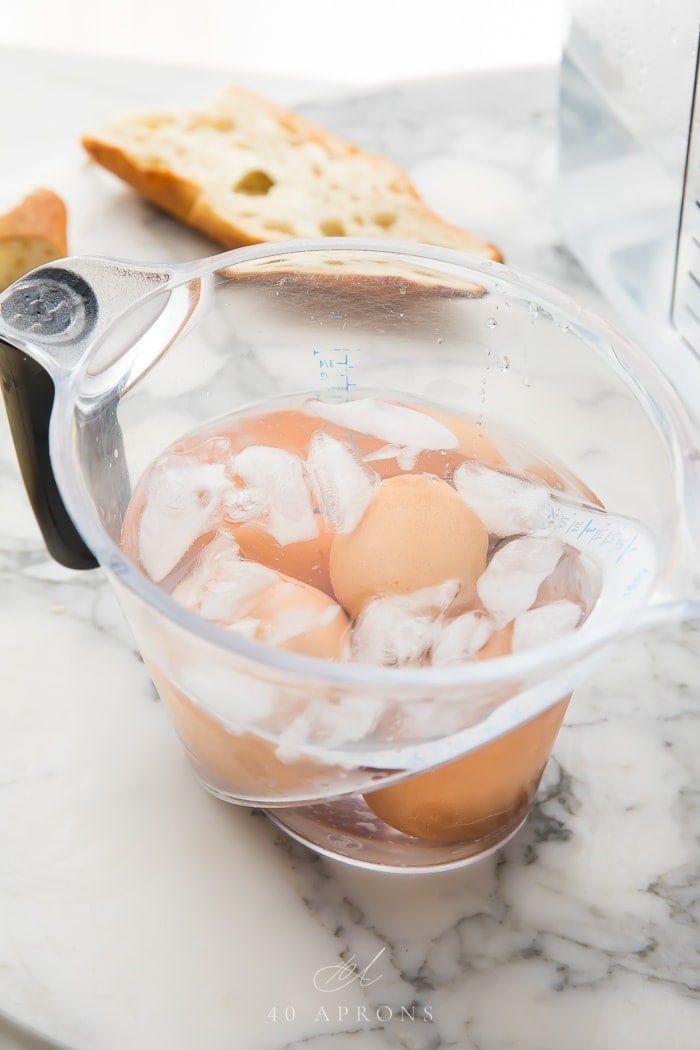
The Best Sous Vide Cooker
I personally use the Anova Sous Vide Precision Cooker and love it. It’s affordable, compact, and heats and cools the water surprisingly quickly (Of course, it’s not really cooling the water, but it lets the water temperature fall a lot more quickly than I suspected it would.).
I’ve used just about every sous vide gadget out there over the years, from a temperature stabilizer I plugged my manual slow cooker into (Really!) to a beer cooler with precisely heated water. Ya girl has loved her sous vide cooking since before it was affordable, right?
I highly recommend the Anova as a fantastic entry into the glorious (and shockingly moist and tender) world of sous vide cooking!
How long do these eggs last in the fridge?
After cooking then chilling your eggs, they can last in the fridge up to five days. This makes them awesome for elevated breakfast meal prep or simply to have on hand when you need to put an egg on it. They’re incredibly versatile – from simple toast to fancy brunch spreads.
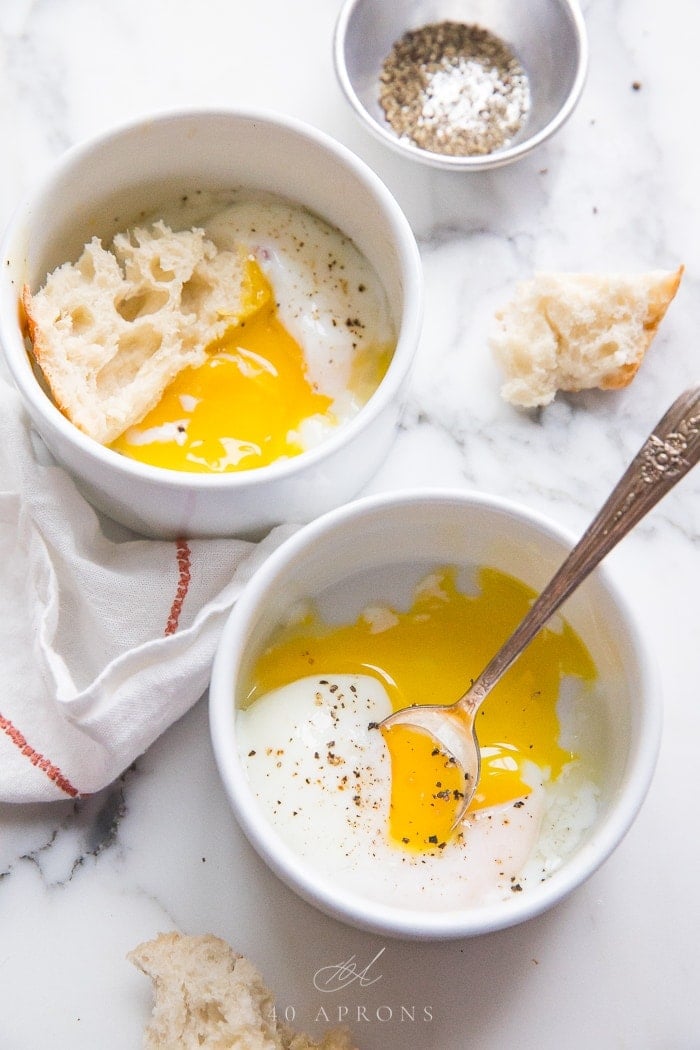
If you’re looking for some ideas, sous vide eggs are delightful with Easy Whole30 Breakfast Sausage, Air Fryer Bacon, Air Fryer Hashbrowns with Chipotle Ketchup, and an extra egg on top of my Hashbrown Breakfast Casserole, or simply enjoy as it’s cascading down a piece of golden brown toast!
Other Recipes You’ll Love
- Easy Sous Vide Chicken Breast
- Egg Bites with Cottage Cheese
- Sous Vide Turkey Breast with Crispy Skin
- Perfect Easy Peel Hard and Soft Boiled Eggs
- Sous Vide Tri Tip with Easy Chimichurri Sauce
- Best Filet Mignon Ever with Garlic Herb Compound Butter
- Healthy Sous Vide Egg Bites with Bacon (Made in Oven, Whole30)
Hey – you’ve made it this far, and now we’re best friends! If you make this recipe, I’d love for you to give it a star rating ★ below. Make sure you follow me on Instagram, Pinterest, and Facebook, too!
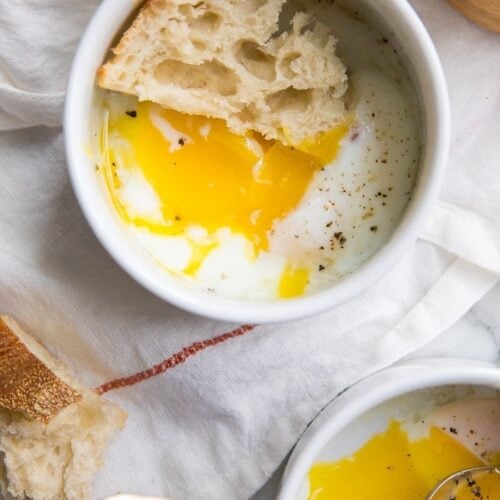
Perfect Sous Vide Eggs
Equipment
- Large pot or other heat-resistant container filled with warm water
- Sous vide immersion circulator
- Tongs
- large bowl or other container, filled with ice and cold water
Ingredients
- 6 large eggs any type
- salt to taste
- pepper to taste
Instructions
- Preheat large pot of water with sous vide immersion circulator to 165° Fahrenheit (74° Celsius). Pot should be deep enough that water level falls between minimum and maximum indicators on circulator.
- Carefully place uncooked eggs directly into water bath, being careful not to crack shells. Set timer for 15 minutes and let eggs cook undisturbed. (See notes for timings to choose the egg consistency you want.)
- After 15 minutes, immediately and carefully remove eggs from water bath. Place cooked eggs in ice bath and let eggs cool 3 to 5 minutes.
- Once cool to touch, crack eggs into serving dishes, season with salt and pepper, and serve.
- 13.5 minutes for a runny yolk
- 14 minutes for a jammier yolk
- 15 minutes for the most set (but still creamy) yolk
Approximate Information for One Serving
Nutrition Disclaimers
Number of total servings shown is approximate. Actual number of servings will depend on your preferred portion sizes.
Nutritional values shown are general guidelines and reflect information for 1 serving using the ingredients listed, not including any optional ingredients. Actual macros may vary slightly depending on specific brands and types of ingredients used.
To determine the weight of one serving, prepare the recipe as instructed. Weigh the finished recipe, then divide the weight of the finished recipe (not including the weight of the container the food is in) by the desired number of servings. Result will be the weight of one serving.
Did You Make This Recipe?
Tag @40aprons on Instagram and be sure to leave a review on the blog post!
Never Miss A Meal!
New Recipes Straight To Your Inbox
A curated selection of our most recent recipes, delivered straight to your inbox once a week.
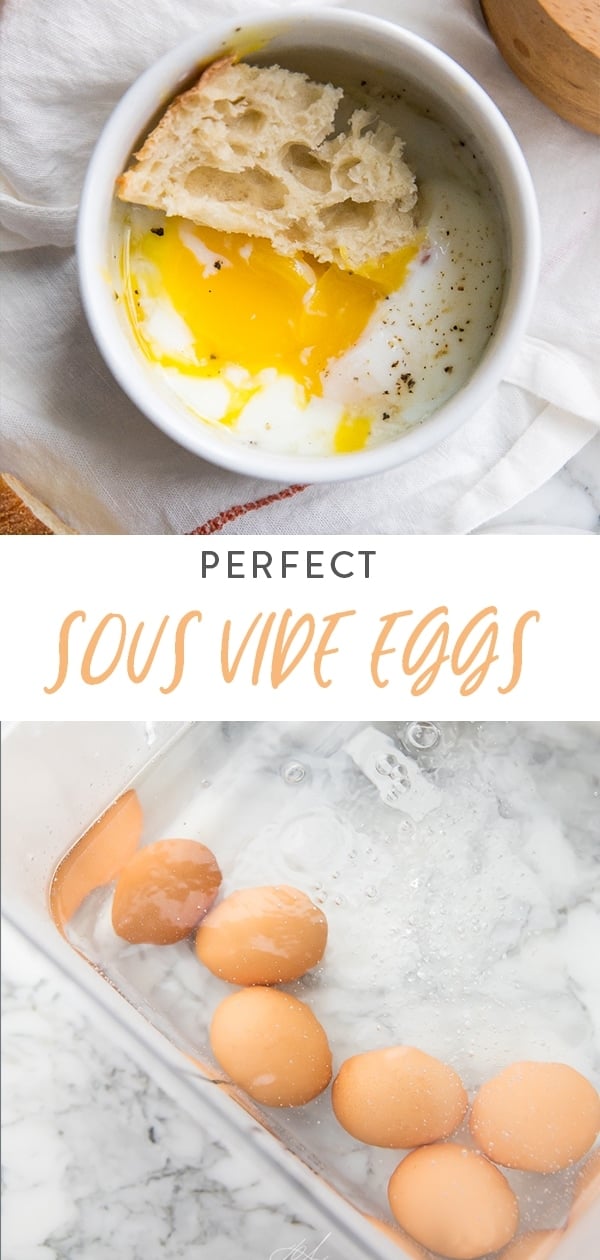
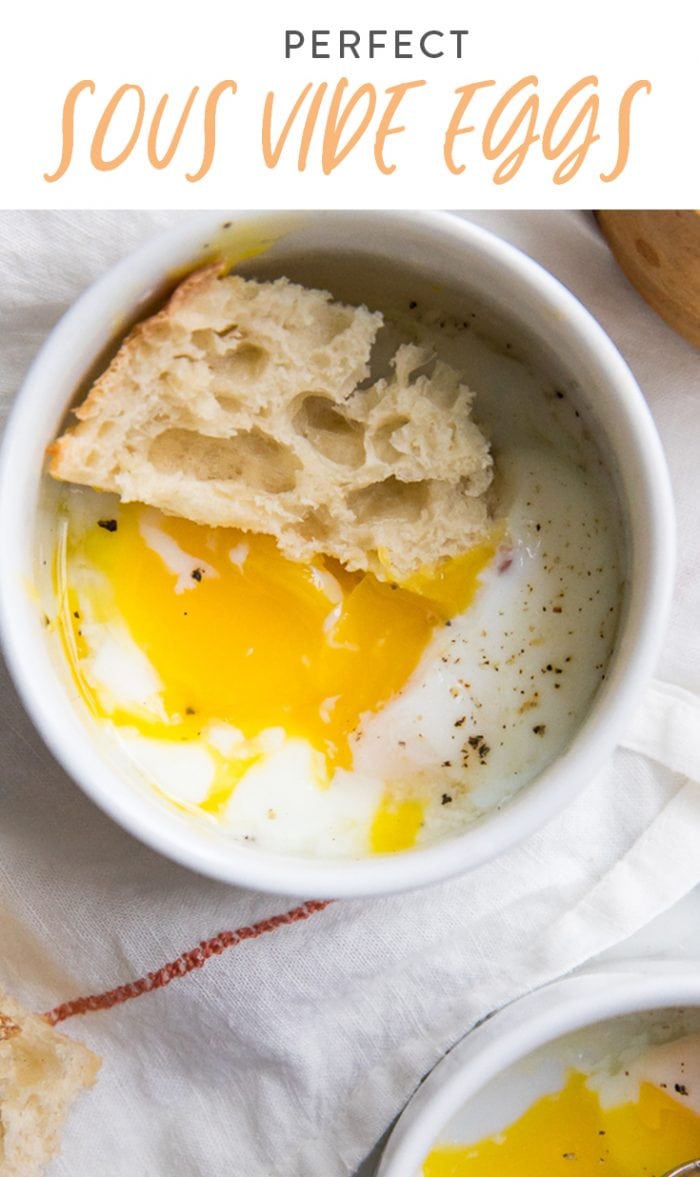
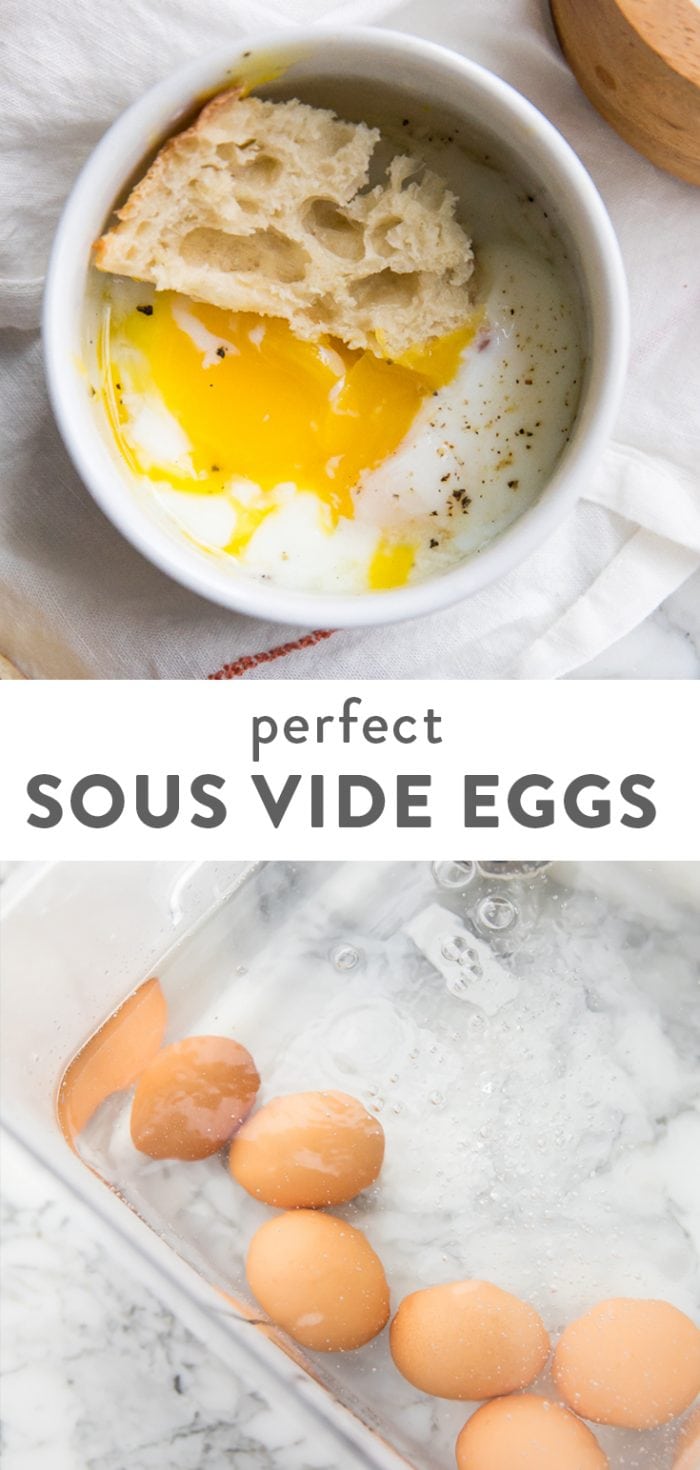



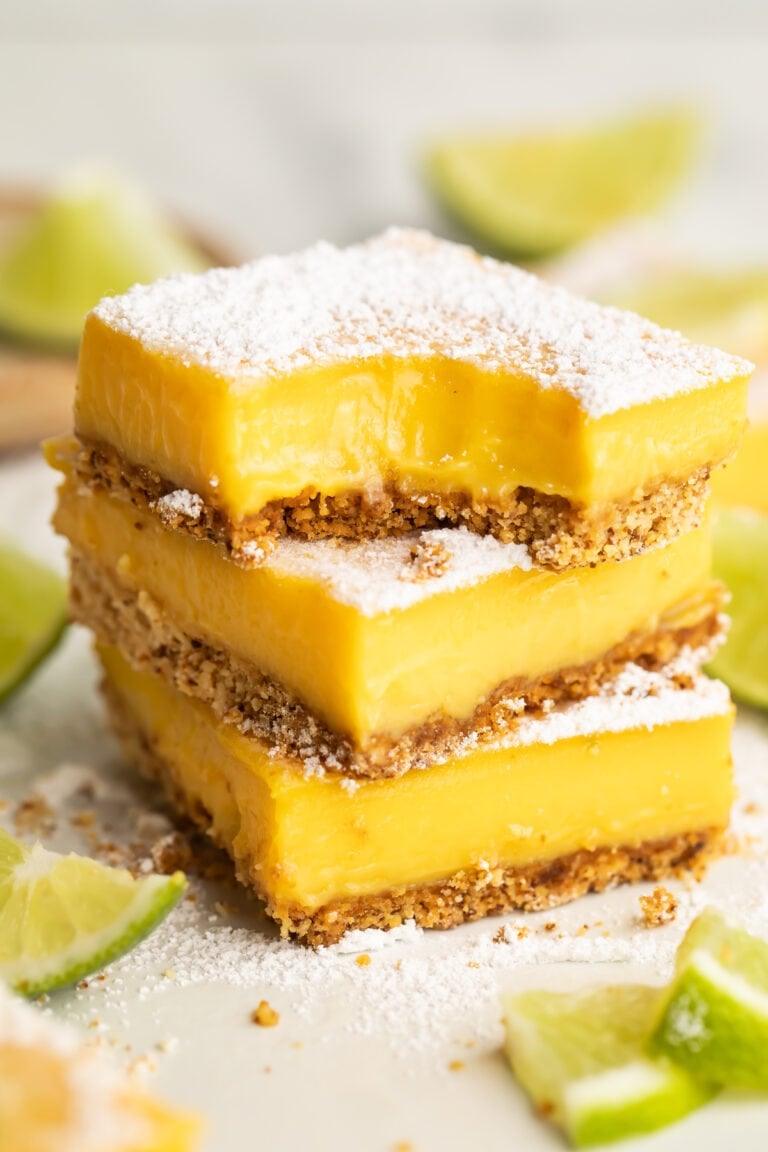
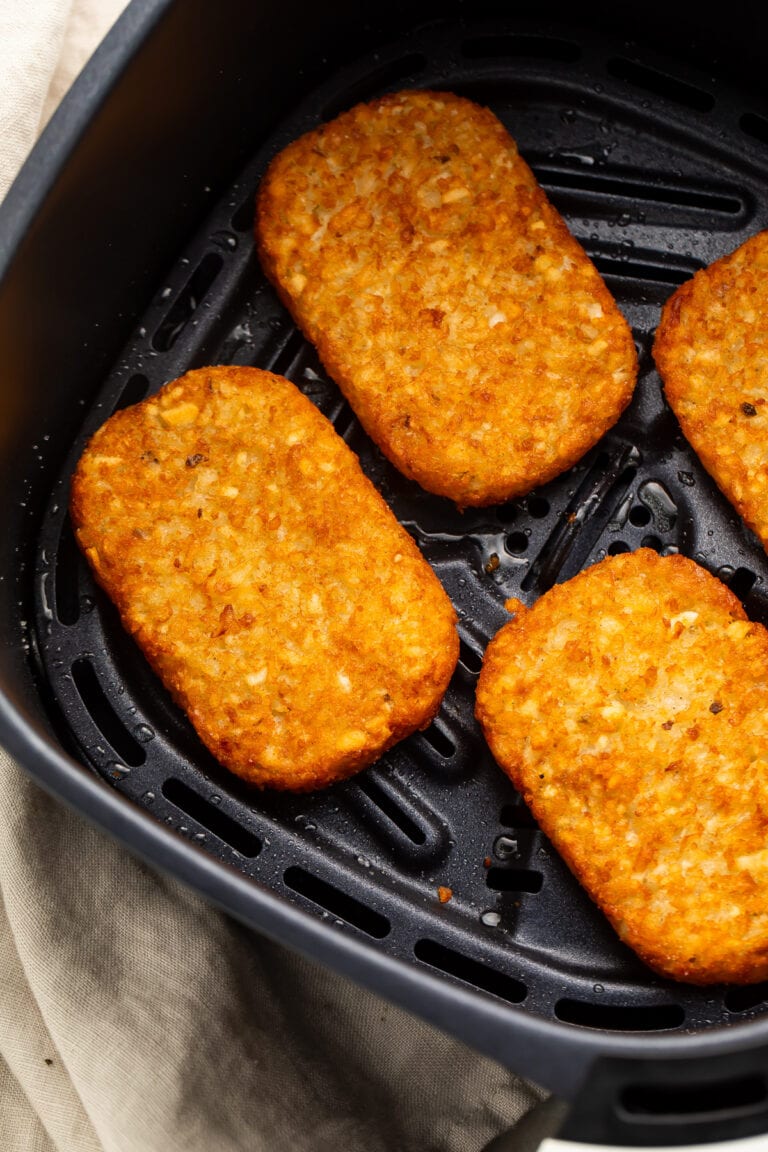

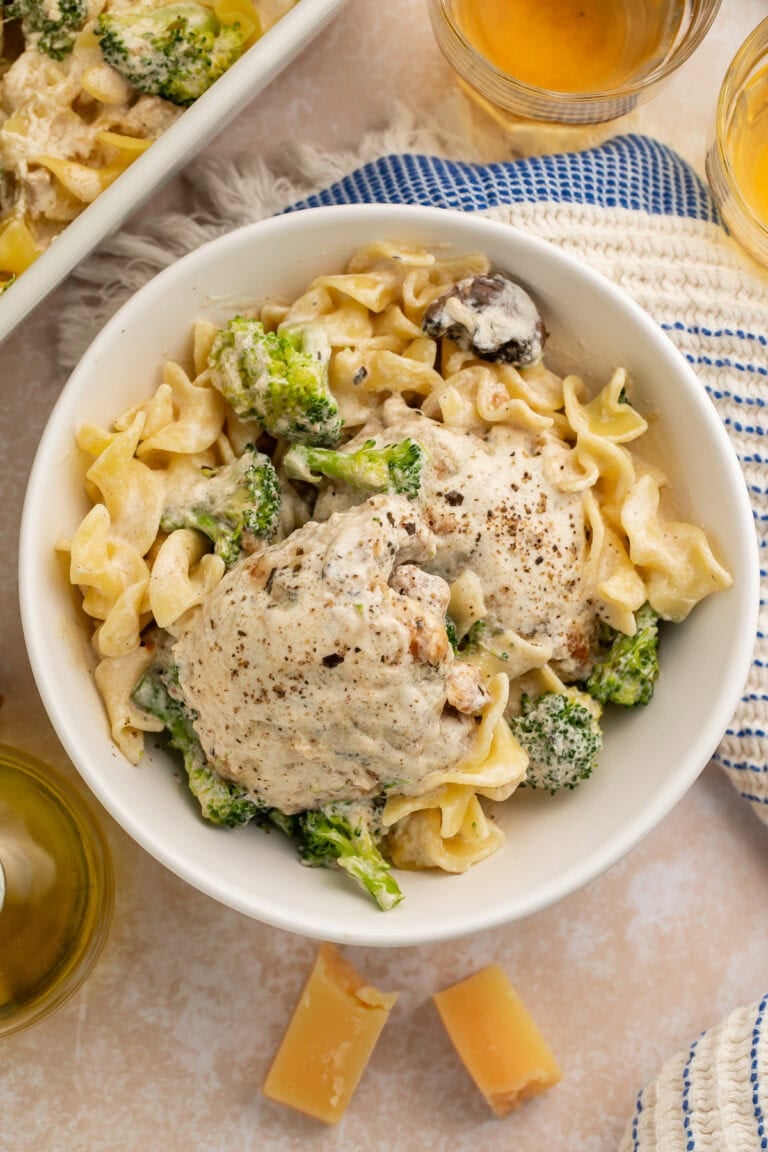











I followed the instructions to a T. Exactly 15 minutes at 165F. Then the ice bath. Imagine my disappointment when the egg whites were soupy. And even worse, I had made a week’s worth of breakfast that I’ll either have to trash or suffer through. I guess I’m going back to the stove top method, which has always given me the perfect texture, even if I have to deal with a cracked egg or two.
Hi there! We’re so sorry for the issues. We’re actually retesting this recipe soon, so we’ll be sure to address those issues. Thank you for your feedback!
Hi, what’s the weight of the egg used in your recipe?
Hi Susanna! We use large eggs in this recipe. Let us know if you try them! 😊
Should eggs be brought to room temperature first?
Hi, Jamie! You can keep your eggs in the fridge until your water bath fully heats up. Let us know if you try them! 🙂
That’s great that they can be made in advance. What have you found to be the best way to reheat them for serving?
Hi Jim, you could reheat in the microwave by setting the egg in a mug with water!
Perfect… didn’t ice bath, just waited about a minute and plop them onto English muffin
So glad you enjoyed, Rosario! Thanks so much for the review!
I followed the instructions. I even set an individual timer. I did the ice bath! The whites were runny but the yolk was great. I reside at 6300 ft. Maybe that’s why.
Hi Lu, so sorry to hear that! There are definitely a few factors that could alter the outcome, such as size of the eggs used and yes, altitude may even be a factor! I would suggest trying again adding a few minutes on to the 15 minute cook time and see if that solves the issue with the whites!
I am confused about the wording of the cooking times for eggs. You said that at 165 degrees and 45 minutes… produced a very, very set yolk and less set white
but at the same temperature and less time… produced totally set whites (without being too firm) and gorgeously runny, rich yolks
I am confused on how cooking eggs for 15 minutes produces totally set whites but continuing to cook them for 45 minutes produces a less set white. I think there is supposed to be a relative comparison here but I suppose I missed it.
Hi, Rick! I see your confusion – when we say 165° for 45 minutes gave us a “very set yolk and less set whites”, we meant the whites were less-set in relation to the yolk, not in relation to the egg whites of the 15-minute cook time.
The 15-minute cook time gave us both the perfectly-set egg whites and the runny yolks we were aiming for, as opposed to the very-set egg yolks and less-set-than-the-very-set-yolks egg whites we got with the 45-minute cook time.
It may just be that I’m not used to the aesthetic, but the whites were a bit too runny for me. Also recommend that you have a teaspoon ready to scrape out the bits that still adhere to the sides of the shell once you crack them. I’ll keep experimenting!
We appreciate the feedback!
We are in Germany! Just moved here. Tried the recipe and the white was a bit runny so I put them back in for 10 more minutes. My husband is smart with engineering and stuff and says a lot of factors could come into play like altitude, German eggs, temperature differential, the temperature of the fridge, etc. So I don’t blame you at all. Love the recipe! Thanks for experimenting.
Awesome, so glad you enjoyed this recipe! I’m happy the extra 10 minutes worked out for you & I appreciate you taking the time to leave a review 🙂
Hi ma’am
Nazeem here from Cape Town, South Africa. My wife bought me this sous vide contraption for my last birthday….nudge-nudge-wink-wink….I’m the cook in the house.
So, needless to say, I’m trying all kinds of recipe’s, and I came across yours for eggs in the sv….I tried it exactly to your instructions ma’am….white was still very much runny. (74deg C for 15mins)…..then immediately into an ice-bath.
Any suggestions please. Increase the temp? Extend the period?
I’m new at this sous vide cooking, but would like to get better at it.
All the best
The eggs will be a bit runny, but you can always increase the timing a bit!